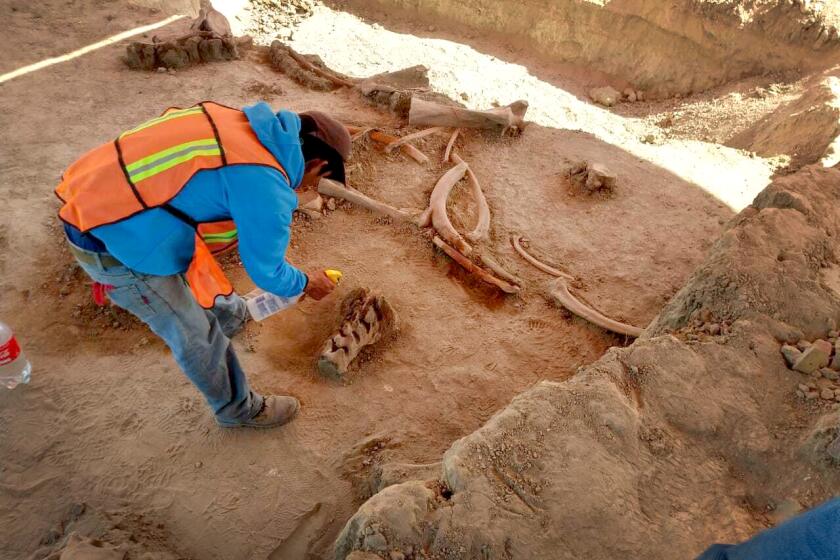Perfectly preserved Ice Age cave bear found in Arctic Russia

- Share via
Reindeer herders in a Russian Arctic archipelago have found an immaculately preserved carcass of an Ice Age cave bear, researchers said Monday.
The find — revealed as permafrost melts across vast areas of Siberia — was discovered on the Lyakhovsky Islands with its teeth and even its nose intact. Previously, scientists only had been able to discover the bones of cave bears that became extinct 15,000 years ago.
Scientists of the North-Eastern Federal University in Yakutsk, the premier center for research into woolly mammoths and other prehistoric species, hailed the find as groundbreaking.
In a statement issued by the university, researcher Lena Grigorieva emphasized that “this is the first and only find of its kind — a whole bear carcass with soft tissues.”
He added, “It is completely preserved, with all internal organs in place, including even its nose. This find is of great importance for the whole world.”
A preliminary analysis indicated that the adult bear lived 22,000 to 39,500 years ago.
The giant pachyderms once roamed the Valley of Mexico.
“It is necessary to carry out radiocarbon analysis to determine the precise age of the bear,” the university quoted researcher Maxim Cheprasov as saying.
The bear carcass was found by reindeer herders on Bolshoy Lyakhovsky Island. It is the largest of the Lyakhovsky Islands, which are part of the New Siberian Islands archipelago that lies between the Laptev Sea and the East Siberian Sea.
At about the same time, a well-preserved carcass of a cave bear cub was also found in another area in Yakutia’s mainland, the university said. It didn’t describe its condition in detail but noted that scientists were hopeful of obtaining its DNA.
Recent years have seen major discoveries of mammoths, woolly rhinos, Ice Age foals, several puppies and cave lion cubs as the permafrost melts.
More to Read
Sign up for Essential California
The most important California stories and recommendations in your inbox every morning.
You may occasionally receive promotional content from the Los Angeles Times.











